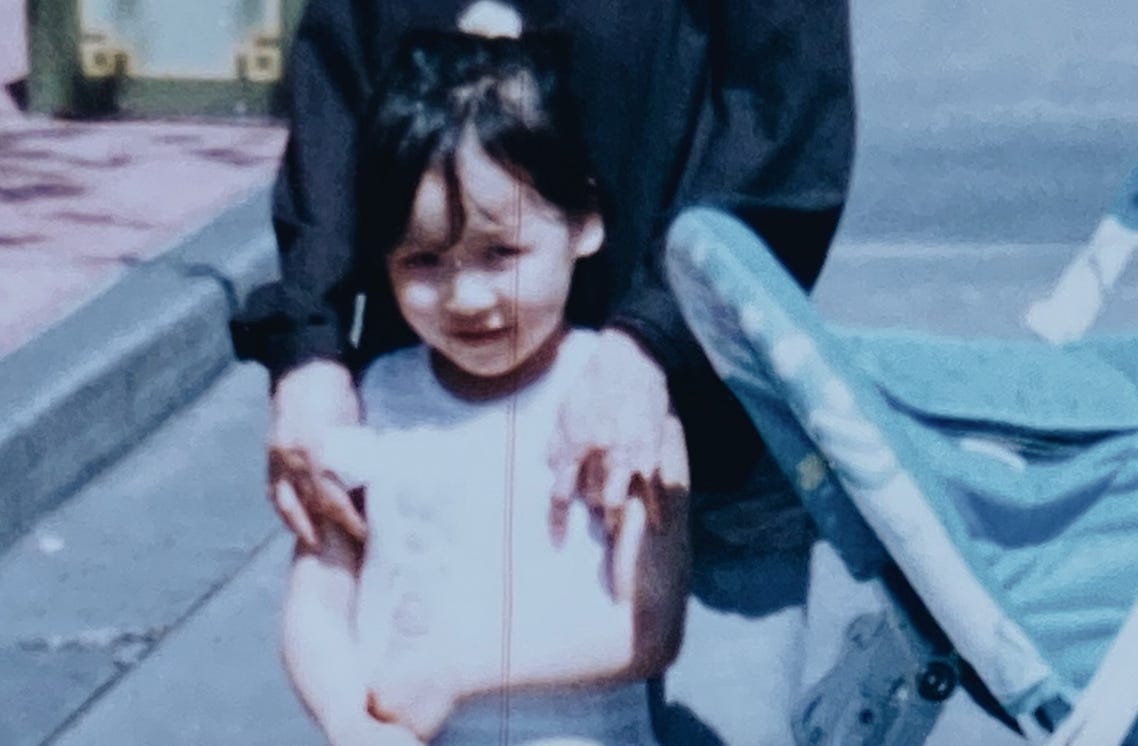Radical candor makes me wanna throw up mom's spaghetti
I'm friggin exhausted from filtering every sentence
I’ve always envied people who say what they mean without rehearsing it in their heads first. I’m not one of them. Hi, I’m Christina, and I’m currently relapsing in my chronic need to people-please. It’s a lifelong condition, occasionally in remission, usually triggered by feedback meetings and Slack messages that start with “quick question.”
I grew up in a house where quiet meant respect. Where you didn’t talk back, and you definitely, most certainly didn’t correct your elders—not unless you were signing a waiver to your hiney and this broomstick. So you learn to survive by controlling yourself. Be docile. Be polite. Don’t give me that look, it’s not as sad as it sounds. My parents did the best they could with what they had, which wasn’t much besides a conviction that obedience kept you safe. I’m sure if they had the same resources as we do now then thinks would’ve been different. ANYWAYS, it’s a hard instinct to unlearn, especially when you step into a corporate world that ties respect with loudness.
In my twenties, I thought confidence was something you could grow into, like adult teeth. That eventually you’d wake up and stop editing yourself mid sentence because you simply knew more. But thirty five years around the sun, and I still find myself swallowing opinions. I’ve watched countless conversations roll by like trains I was supposed to board. On a good day, I chalk it up to professionalism. But the reality that I exist in is that it’s just a more expensive version of the same silence I learned at home.
There have been meetings where I knew the direction was wrong, and I probably should’ve asked the question or named the obvious problem. Instead, I took notes, waited, told myself I’d follow up later. Later always feels safer. It’s easier to risk being wrong with one person than in front of a room. But someone much smarter than me had said that the more you delay your voice, the lonelier the work becomes.
And that’s the thing, is that I did have a voice and an opinion but I wasn’t equipped on how to translate that outloud. Every thought still passes through a small customs checkpoint:
Will this make someone defensive?
Will they still like me after?
Will I look stupid?
Years of trying to be the “good” anything—good daughter, good colleague, good friend, good boss—have conditioned my brain to prioritize peace over honesty. Which sounds noble until your therapist tells you that it’s just another form of self-erasure. And let me tell you something, that’s pretty soul crushing to hear.
There’s a certain kind of exhaustion that comes from speaking in drafts. Imagine feeling like you have to soften every sentence so no one misreads your intent. Use an exclamation mark, instead of a period. Add ‘lol’ behind that direct statement. Did your voice have an influx in pitch? Practice it enough and you’ll start to forget what unfiltered sounds like. But I promise that you’ll hate yourself because unfiltered is the privilege that you’ll crave.
I think about how much of work—of life, really—unravels because people can’t say what they mean. And I don’t think it’s done intentionally either. Maybe they’re like me, and their instinct was shaped by rooms where candor was punished. How often do we hear that people welcome “radical candor,” only to watch it get weaponized? We all want to be seen as agreeable, so we can be seen as part of the team.
Recently, I had to make a decision that involved a lot of people. It left me drained and physically ill and sitting at my desk, crying into the keyboard because I couldn’t say what I needed to say. When I finally did, the reaction wasn’t nearly as bad as I’d imagined. And it never is. The mind loves a worst-case scenario. But most of the time, we experience the moment, we survive, and we move on. We always do.
These days, I’m trying to practice something a little bit different. I wouldn’t call it boldness (that still feels too dramatic) but willingness. Saying things once instead of rehearsing them twice. Letting the room absorb what I mean before I start apologizing for it. I won’t always get it right. But I’m trying my darndest to lean into that fact that clarity, even when it really uncomfortable, is its own kind of kindness…to yourself.





i haven't resonated so deeply with a substack post in a while! so beautifully put - it felt like i understood myself a bit better after reading it. thank you for this post 🤎
this was so beautiful to read — you captured my (and I know for sure, so many others') thoughts we tend to sit in as each day goes by. from "I’ve watched countless conversations roll by like trains I was supposed to board" to "I won’t always get it right. But I’m trying my darndest to lean into that fact that clarity, even when it really uncomfortable, is its own kind of kindness…to yourself" feels like the warmest hug. thank you for putting what I can't into words!